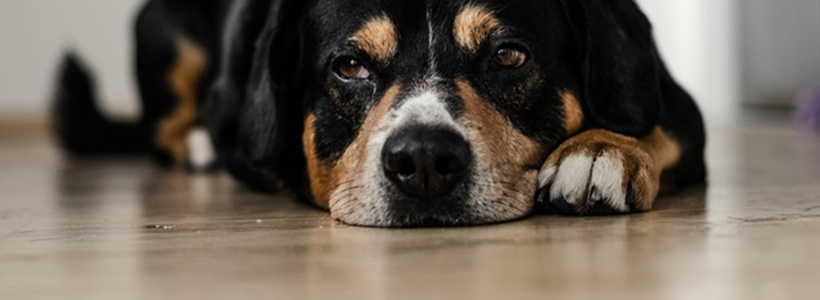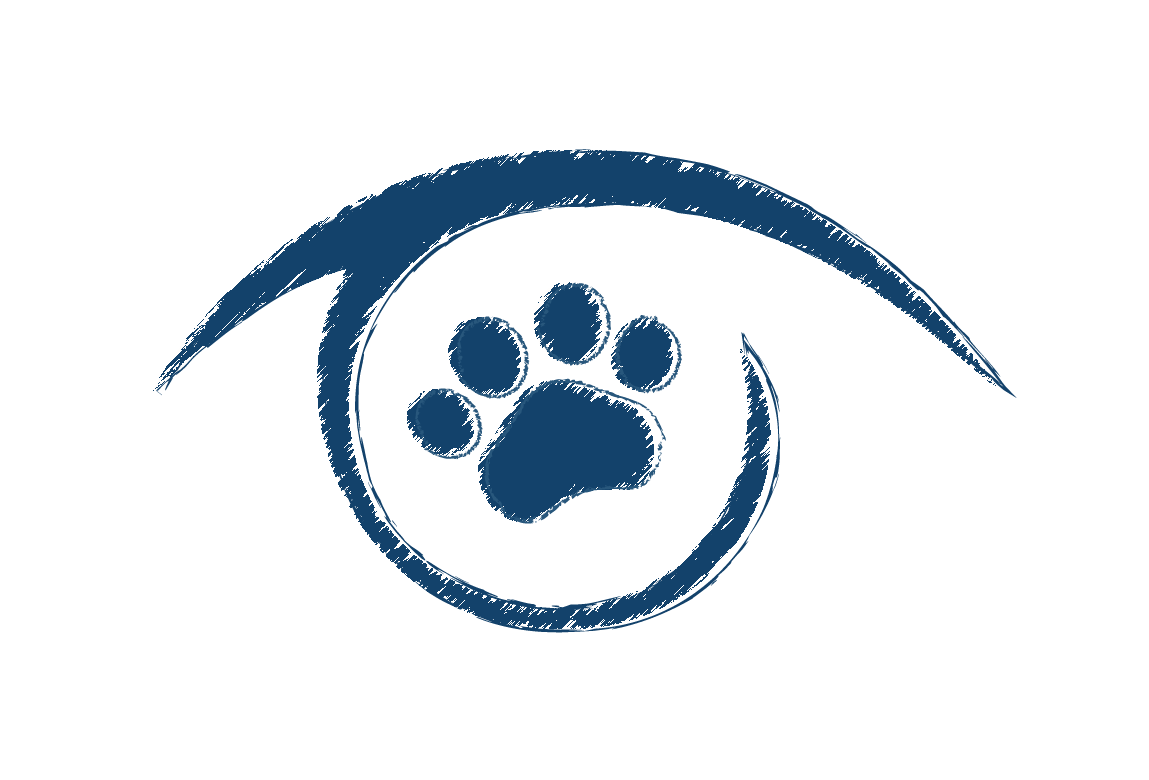Q. What are the first steps for dog cataract surgery?
Before considering surgery, Dr. Mathes will do a full ophthalmic examination on your pet. This helps determine if there are any other eye health issues and if your dog’s cataracts require surgery for removal. To help her see the whole lens, your dog’s eyes will probably be dilated. This takes about thirty minutes, so plan on about an hour for your entire visit. After the eye exam, Dr. Mathes will discuss your pet’s exam with you and talk about cataract surgery with you.
Q. What happens before dog cataract surgery?
If your pet is a candidate for surgery and if you would like to pursue cataract surgery, we perform some retinal tests on the eye. These tests evaluate the back of the eye before surgery. The tests are done in the morning or afternoon of most days and take about 1-2 hours for us to complete. In many cases, they may be done on the same day as your visit. After your pet has passed the tests, cataract surgery may be scheduled.
Q. What should I expect on the day of my dog’s cataract surgery?
Cataract surgery is an outpatient surgery, meaning that your pet does not need to stay overnight. Surgery intake is done in the morning and your pet will stay with us for the day. We always think it’s nice for your pup to have something familiar from home, so you are welcome to bring a blanket or favorite toy. We will admit your dog and start pre-operative medications and care.
Q. How is cataract surgery done on dogs?
After the pre-operative care is complete, cataract surgery is performed by making a very small incision at the side of the eye under high magnification. The cataract is removed using ultrasound power (phacoemulsification). After the cataract is removed, a new artificial lens is placed. This will give your dog normal vision after surgery.
Q. When can my dog go home after cataract surgery?
Your pet will be discharged several hours after cataract surgery with detailed instructions on home care.
Q. What do I need to do at home after cataract surgery?
Because each patient is different, your pet’s eye care will be unique after cataract surgery. All pets will get some eye drops and pills at home after surgery. We will provide instructions during the healing process about the medications you will give at home.
Q. What about anesthesia during dog cataract surgery?
Properly performed and monitored general anesthesia is usually very safe. To ensure our patient’s utmost safety, we have a dedicated anesthetist just for your pet. Dr. Mathes and her highly trained nurses are with your pet at all times monitoring anesthesia during induction, surgery and recovery.
We are always available in-person, by phone or by email for any of your questions or comments! For specific concerns regarding your pets eye health or procedure, please contact us for more information!
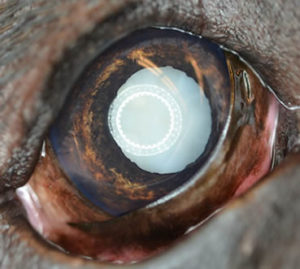
Here is a complete or mature dog cataract. This cataract is causing blindness in this eye and requires cataract surgery for removal.
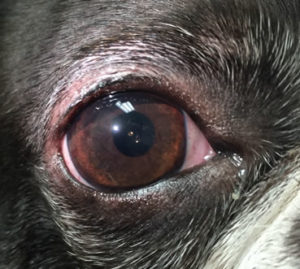
This is a photo of a dog after cataract surgery. There is a new lens in the eye allowing this guy to see normally again.
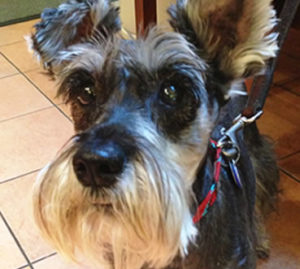
This little guy is loving his new vision after cataract surgery!
